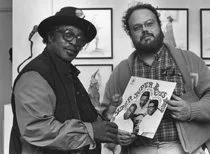On Sunday night, starting about 5 p.m. Mountain Time, I'll be live blogging the debate, which is being shown on CNN. You can find that here on this very blog.
I've also promised to do a call-in with The New Mexican's Web site, which plans to run the audio.
I'll probably even snap a few photos up there. Check this site, The New Mexican, and my dynamic FLICKR page.
Here's a look at Richardson's schedule this weekend:
Saturday, June 2I won't be going to Iowa with the campaign.
New Hampshire- Eastern Time
WHEN: 9 am
WHAT: House Party at the Home of Jim Stevenson
WHERE: 468 Webster Street, Manchester, NH
WHEN: 10:30 am
WHAT: New Hampshire Democratic Convention
WHERE: 144 South Street, Rundlett Middle School, Concord, NH
WHEN: 1:45 pm
WHAT: The Governor will walk Union Street with Lily Mesa, Eva Castillo,
and Sonia Parra, ending at Don Quijote Restaurant
WHERE: Start at 362 Union Street, Manchester, NH
Iowa- Central Time
WHEN: 4:30 pm
WHAT: The Governor will participate in PrideFest 2007
WHERE: Greene Square Park, Cedar Rapids, IA
WHEN: 5:30 pm
WHAT: Iowa Hall of Fame Dinner
WHERE: Crowne Plaza, Five Seasons Hotel, 350 1st Avenue NE, Cedar Rapids, IA
Sunday, June 3
New Hampshire- Eastern Time
WHEN: 7:00 pm
WHAT: CNN, WMUR and the Union Leader 2008 Democratic Presidential Debate
WHERE: St. Anselm College, Manchester, NH
WHEN: Following the debate
WHAT: Debate Watch and post-debate party
WHERE: Richardson for President NH Headquarters, 545 Hookset Rd., Manchester, NH
And I won't be doing my radio shows this weekend either. Laurell is sitting in for the Santa Fe Opry Friday, while Dan will be doing Terrell's Sound World Sunday night. Hear them on KSFR, 90.7 FM.















 And now comes this collection of Spanish-language renditions of ’60s rock and soul hits (and even a stray Marty Robbins song) featuring vocals by Big Sandy, Los Lobos’ Cesar Rosas (who produced the record), and Little Willie G of the East L.A. rockers Thee Midnighters.
And now comes this collection of Spanish-language renditions of ’60s rock and soul hits (and even a stray Marty Robbins song) featuring vocals by Big Sandy, Los Lobos’ Cesar Rosas (who produced the record), and Little Willie G of the East L.A. rockers Thee Midnighters.











